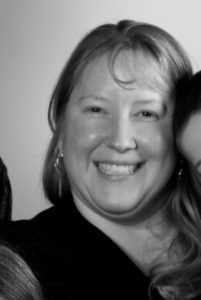Act Your Age
 “In my teens, I was trying to figure out who I was. In my twenties I was trying to prove who I was. In my thirties I knew who I was but cared what people thought about me. In my forties I stopped caring about anyone’s opinion except my own, my husband’s, and the Lord’s.”
“In my teens, I was trying to figure out who I was. In my twenties I was trying to prove who I was. In my thirties I knew who I was but cared what people thought about me. In my forties I stopped caring about anyone’s opinion except my own, my husband’s, and the Lord’s.”
This is how a friend translated my especially long babble about why I felt so happy and free lately. Someday I hope to be more like this friend, whose joy is tempered with hard-earned, valuable wisdom. She went into my brain, gathered all the clutter and organized it into one of those gorgeous but affordable storage units from IKEA. I wanted to print her summation on a bookmark and give it out to people to explain my life. I wouldn’t give it to random people, just the ones who see me all the time, like the checkout ladies at the grocery store and the stop-go sign guys working construction down the street. Then I would write thank you notes to the folks who’ve loved me through all those stages and still talk to me at church on purpose. I am filled with gratitude when I see God’s faithfulness in my life, and I don’t have a single regret. (That is a lie. I totally regret the body glitter phase of 1998.)
I want to see considerations of age and experience played out in the fiction I read. Age is only one facet of character-building, but it can often be overlooked as a fantastic way to set characters apart. Age is important in speculative fiction. A wizened old man can have the mind of a child, a sentient ship can embody the playfulness of a kindergartener. However, when you shuck traditional developmental stages, you better sell it like a kid hawking lemonade with the bicycle page from the Walmart flyer in his pocket.
For example, if you are writing a first kiss between your characters in a Young Adult novel, remember that their instinct will not be to groan and sink their fingers into each other’s hair. At least one of them should be anxious that they’re doing it wrong. If your middle-aged ship captain keeps losing sailors because he forgets to sign the paychecks, you need to explain how he got this far without learning how to be an adult. Unless there is a good reason to the contrary, readers will not believe children who are perfectly behaved and erudite (unless they’re robots, or Charles Wallace), or a twenty-something who rules planets with the cool detachment of an octogenarian.
I’m perfectly happy to believe all the crazy worldbuilding you can throw at me. I will overlook a few tropes if the plot is halfway interesting. But if your characters do not “act their age,” then you need to explain why that is so. If the young ruler has been trained since birth to rule the galaxy, okay—but when does she let her hair down, and with whom? Certainly not all those stuffy advisors who are loyal to her father. Some aspect of this girl will have to act twenty. Maybe when she gets that illegal tattoo she will love every second of the itching when it heals…and is the tattoo artist involved with the rumors of rebellion that have been churning around her empire?
Mmmm, intergalactic rebellion.
 Another example of age-appropriate plot/character issues is the male protagonist who cannot maintain close relationships. Cool! I love me some slightly damaged alpha males who lead the troops to victory. However, if in the course of the novel nothing affects his hard heart, his character comes off as immature. Rampant, unrepentant immaturity is not a desirable trait for a hero. At least, not the kind of hero I want to root for over the long term. In Chris Wooding’s Retribution Falls, the male protagonist is a sketchy, reckless lone wolf, but by the end of the novel he has cobbled together a team he really cares about. He grows up. And in return, I read the next book in the series.
Another example of age-appropriate plot/character issues is the male protagonist who cannot maintain close relationships. Cool! I love me some slightly damaged alpha males who lead the troops to victory. However, if in the course of the novel nothing affects his hard heart, his character comes off as immature. Rampant, unrepentant immaturity is not a desirable trait for a hero. At least, not the kind of hero I want to root for over the long term. In Chris Wooding’s Retribution Falls, the male protagonist is a sketchy, reckless lone wolf, but by the end of the novel he has cobbled together a team he really cares about. He grows up. And in return, I read the next book in the series.
Our age informs how we write, but it does not stifle our creativity. Similarly, the age of our characters does not limit their behavior, but should not be a red flag of confusion for the reader. So, let’s infuse our characters with the same kind of honest, personal journeys we get to enjoy as we walk with the Lord. Body glitter optional.
QUESTIONS:
Can you think of a good example of “traditional age issues” driving fictional characters? Examples of those traditional things being flipped on their ears to thrilling effect? Here’s another application question: Apart from YA stories, are there ages/life experiences you would like to see represented in speculative fiction? Tropes in YA fiction you wish would moulder and die? Let’s talk about agey things!
– – – – –
 Megan Ebba was a staffworker with InterVarsity Christian Fellowship before becoming a librarian and eventually, a writer.
Megan Ebba was a staffworker with InterVarsity Christian Fellowship before becoming a librarian and eventually, a writer.
In 2014, she won the ACFW’s Genesis Award in the speculative fiction category for her novel, TANGLED IN GOLD. Megan lives in New Hampshire with her husband and three children. To learn more about her and to read more of her articles, visit her web site or friend her on Facebook.





























I hope this generates some good discussion because it’s a great topic!
One of my friends has a major pet peeve about the typical YA dystopian trope where the main lead is a teenage girl, but somehow tough as nails and able to lead entire armies/societies. It would never happen in real life! That’s definitely a tired trope.
Maybe it’s because I read predominately YA, but I find I get tired of every protagonist being young and vibrant. It would be fun and unexpected to read a book with an older protagonist who saves the universe. Why are these savior types always teens or young adults, I’d like to know? What if such a figure was called to that role in their old age? That would be neat.
I’d also like to see new parenthood more in speculative stories, too…that’s a major life shift not often represented. Maybe caring for babies and young children seems antithetical to broad plots about saving the universe or defeating the evil dystopia, but I’d like to see some books that prove that wrong. 😀
Yes! I have a soft spot for wise old owls, and think it would be good if they were given the ingénue role instead of the “Sage who saves the day with good intel” role. As for the children thing, well, this is a very personal answer but I can’t read anything with a kid in it right now, it stresses me out!! However, Sharon Hinck’s “The Restorer” series is about a mom who saves the day and eventually, the whole family gets involved. So if that’s your jam, check her out!
Joan of Arc?
It’s not YA, but in Heinlein’s The Number of the Beast, the protagonists need a babysitter while they battle the enemy across parallel universes and enlist Snow White and the Good Witch.
His shorter and earlier work: The Rolling Stones features teen boys and an adventuresome grandmother. Again, caring for a younger brother while living on the moon, then a space ship play into the plot, as does typical teen procrastination.
Oh, I love Heinlein! He always had such neat little moments in there like that, things that weren’t the main thrust of the story but were just REALLY COOL. I haven’t read “The Rolling Stones” but I love the phrase “adventuresome grandmother” so I’ll have to check that out. Thanks!
Forget age-appropriateness (though that’s hugely important); how about age diversity? It seems that, just like most action heroes are ex-special-forces (the perfect combo of discipline and liberty), most speculative heroes are twentysomething singles. Maybe it’s because that reflects the target audience, or maybe it’s just because youth comes pre-loaded with athleticism, but the constant virility gets old. Why not mix it up and tap into the other six or seven decades in a normal human lifespan? I mean, other than advanced age, which is always good for a bit-part supporting role in the crazy old coot or omnicient mentor.
Young people can’t identify with other age demographics, you say? Yeah, tell that to the makers of “The Incredibles” and “Up,” who regularly defy all ageist expectations.
Yes! One way to get age diversity is to make your youngest character the “Crazy Old Coot” and make your sixty-year old character the one with the bright eyes and the fresh ideas. They’d have to work together, of course, with a cast of other characters, maybe some not entirely human? If we’re mixing it up, we could really mix it up! When I get to my “ensemble cast” novel I will try and remember this notion.
The biggest reason I personally stay away from anything” ex-special forces” is because I’d rather make stuff up than research special forces to the depth I would need in order to write something that wouldn’t be rife with tropes or stereotypes. (Can I confess that? Is that okay to say out loud? I mean, I research pleeeeeenty of other stuff…) However, Chuck Black and Ronie Kendig write military Characters in their Christian novels, if you’d like to take a gander and see how they deal with age and experience.
“Constant virility gets old.” HA!! Maybe you weren’t trying to be funny, but that was really a great line. And you’re right, of course—it’s risky to add physical flaws that hamper a younger character (Patrick Carr’s “A Draw of Kings” makes the main character a drunk) but the risk would pay off if dealing with a physical challenge was part of the character arc. Good ideas!
Sharon Hinck defied this trend, perhaps before it was a trend. The protagonist in her Sword of Llyric series is Susan Mitchell, an average housewife with a teenage son. Yes, the second book, Son of the Restorer (or The Restorer’s Son, maybe; I forget precisely what the title is) had a more typical protagonist, but still, it was an interesting premise.
I might add that neither Bilbo nor Frodo would qualify as protagonists in today’s modern stories. And neither would Lucy, Edmund, Susan, and Peter.
And if virility is old, check out R. J. Anderson’s Knife.
Becky
It was an interesting premise! And if I wasn’t halfway to becoming a soccer mom myself I would have gobbled up those stories. But it felt a little too self-insertion for me (a totally personal and subjective and not literary opinion!) Then again, one of the reasons I like the fantasy genre is that I know I do not have to worry about anything that happens in the book ever happening to me! So, reading about a protagonist with kids just stresses me out, man.
I was hunting for a mermaid book yesterday. You know, if mermaids were real, and the story follows their underwater ecosystem and so forth. What does Goodreads give me?
Girl meets hawt guy who is really a MER. There’s some issue about murder, or revenge, or kingship. Characters get it on at least once. THE END.
How about, I don’t know, a STORY? I’m with Bethany–I’d love to see some young mother adventures, where the kids are small but awesome.
I’m writing a Mermaid-themed book, actually! We have a deep water port in my town and every time the Tall Ships sail up the river I think, “I bet there are, like, Merpeople totally organizing this behind the scenes.” And SHAZAAM! I found a book in there! There is a hawt MER because that’s how I roll, but no one gets it on and it doesn’t end when the characters decide they like each other, that’s just a side bit. So maybe someday you’ll like my underwater ecosystem. I get to go to the beach for research a lot. 🙂
I get tired of the non-existent or barely-there parents in modern YA. Especially when the youth have all the answers and are smarter than the adults around them – it’s ridiculous and unrealistic. Either that or the youth are lying to all authority figures so they can sneak around and save the world.
YES! Let there be a balance between answers and sneaking around. I struggle with this and I don’t write YA, I write adult fiction. But it is convenient to have the protagonist’s parents live in another town, or have an adult character’s parents already be deceased. I think it’s because when parents exist, they HAVE to play a role, even if it’s a small one. There is a relationship that cannot be ignored, and if your story doesn’t have time for that, it feels awkward. So, parents are shunted to the side. Sometimes that’s fine, especially if you write your character dealing with the absentee parents, but like you said, sometimes it’s obvious that it’s just more convenient to push the parents out of the way. Let’s try not to take the easy road!
I have nothing more to add than, “I concur.” 🙂
I would like to point out one of the best examples of characters not acting like their ages are all of the teenagers in any John Green novel. This has always bothered me, but it’s entertaining enough for me to keep reading. Same with Perks of Being a Wallflower!
Because John Green is a secret ninja of YA fiction! He slips in with his age-appropriate problems, realistic parental interactions and big dreams about love and then the book ends and you realize his teens were wicked put together, tho. The author of Perks… had a great line in an interview about teenage angst. He pointed out that it wasn’t really angst, it was longing. And because we all long for things, it is easy for any reader to relate to YA issues if they are written well. Perhaps that is true. Or maybe it’s just the ninja thing. Either way, you’re right–if it is entertaining and well-written, we are willing to overlook inconsistencies. But we should still strive for as much honesty as possible. Thanks for weighing in.!!!
I agree that we need more realism and variety when it comes to ages. One thing that I notice is sort of this idea that people of certain age groups act a certain way, and authors often do not come out of stereotypes like the angst ridden teen.
An interesting aspect of how a person may act at a certain age is their past and how much responsibility they have been burdened with. Someone is more likely to be mature if they’ve had to take responsibility to lead or take care of others, for instance. And whether or not others will see them as a leader and respect them depends on who they are surrounded by. Adults may not want to look to a twelve year old as a leader, but under certain circumstances a group of children twelve and under may grant some authority to another twelve year old.
I’m late to this party, but re-reading Lois McMaster Bujold’s Miles Vorkosigan series has reminded me just how fantastically well she handles age and maturity issues, not only by aging Miles himself from seventeen to thirty and beyond, and all the psychological and physiological changes he undergoes in the process, but also with a wide cast of compelling secondary characters who span the entire age spectrum. And every single one of them rings true, which is one of the reasons Bujold is such a great writer.
This post reminded me of how I had a rather hard time believing that a 14-year-old (Queen Amidala) could be elected ruler over an entire planet. It would have been different if one became queen on Naboo by being born into a royal family. Another reason I can comfortably erase the entire prequel trilogy from my memory. 😉
Getting the right behavior for children is my biggest problem. I tend to write them smarter than average.
As for adults, I think anything goes. I’ve know adults who were child-like, some who refused to age, some who always wanted to party, those that had no sense of humor and a few brilliant minds.